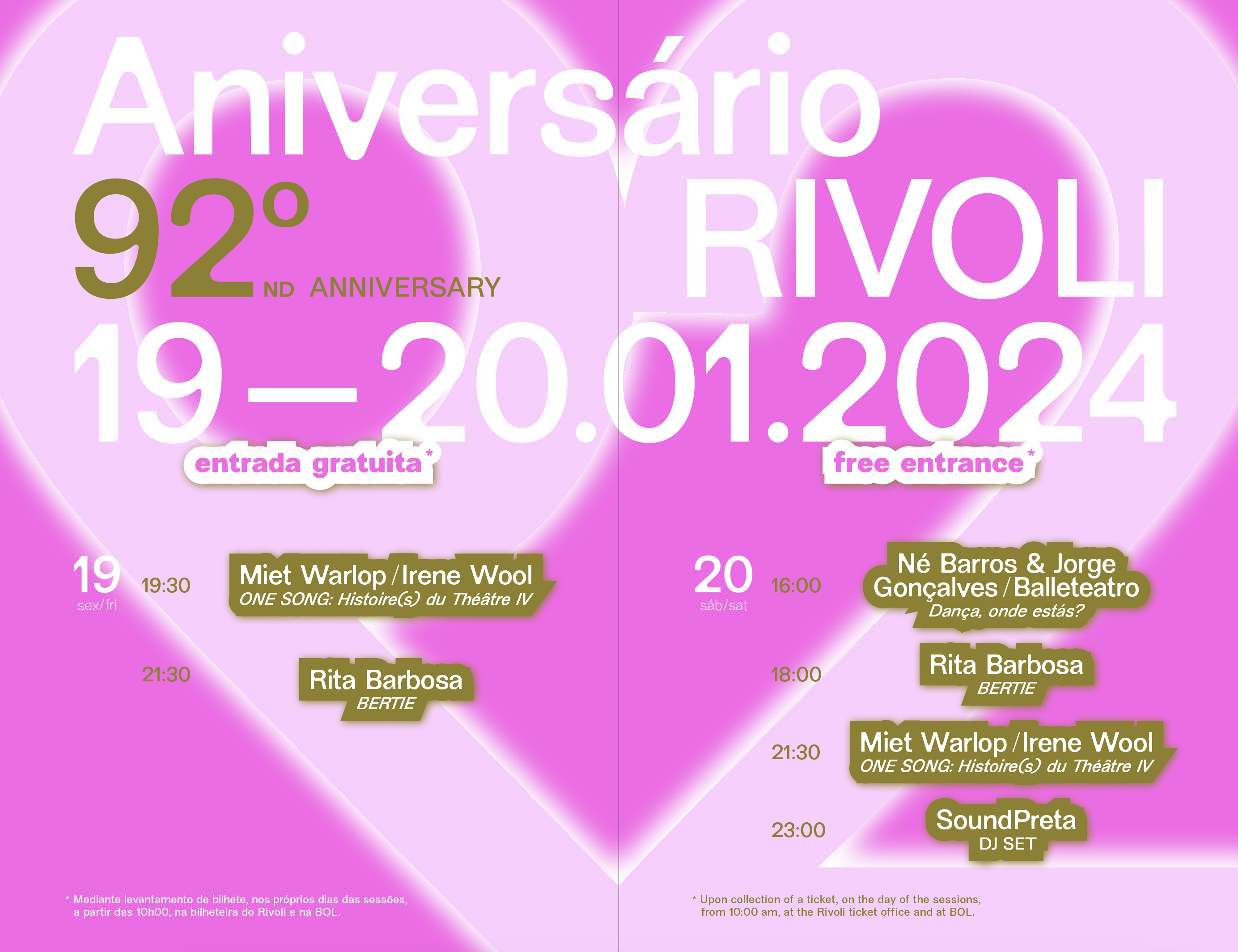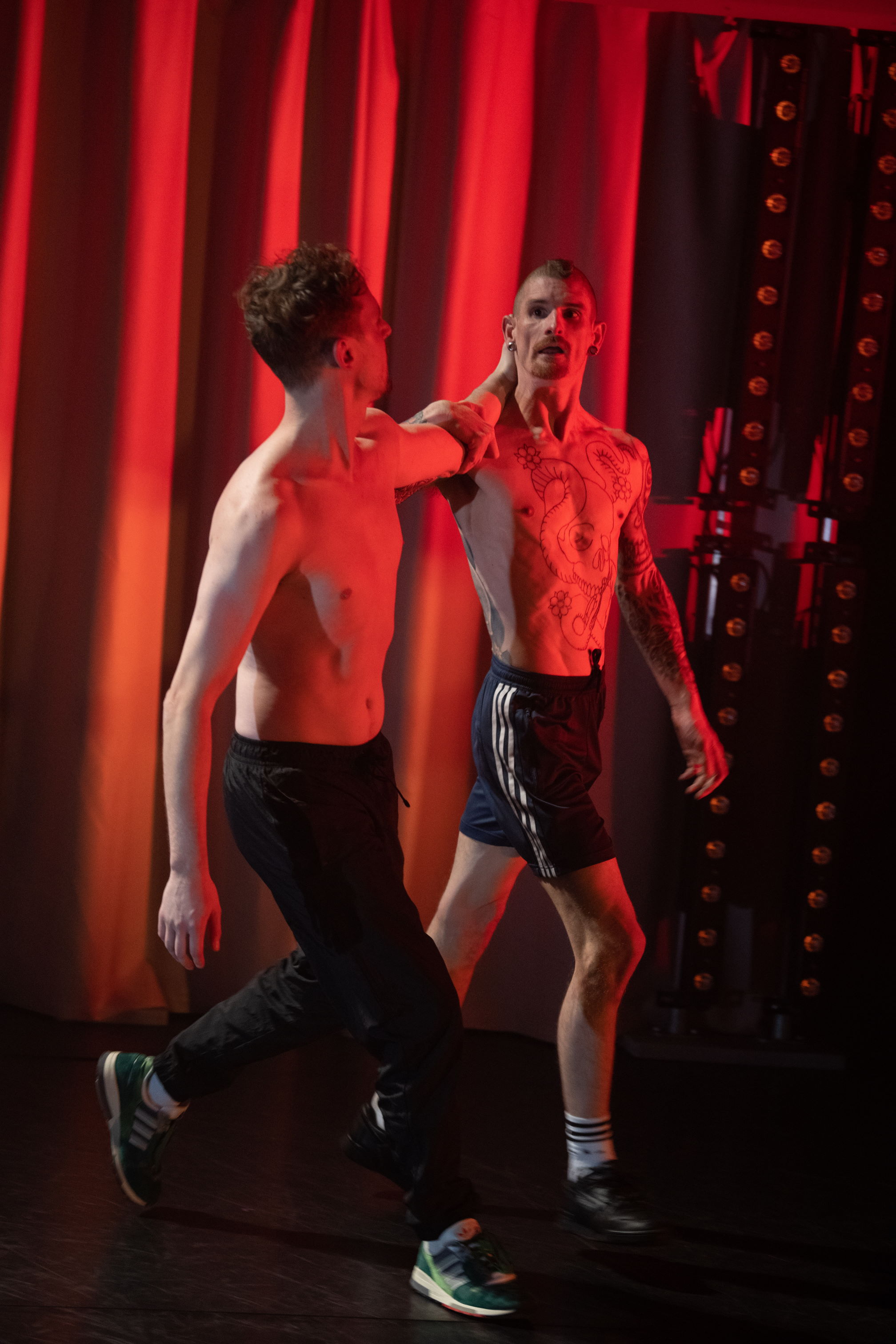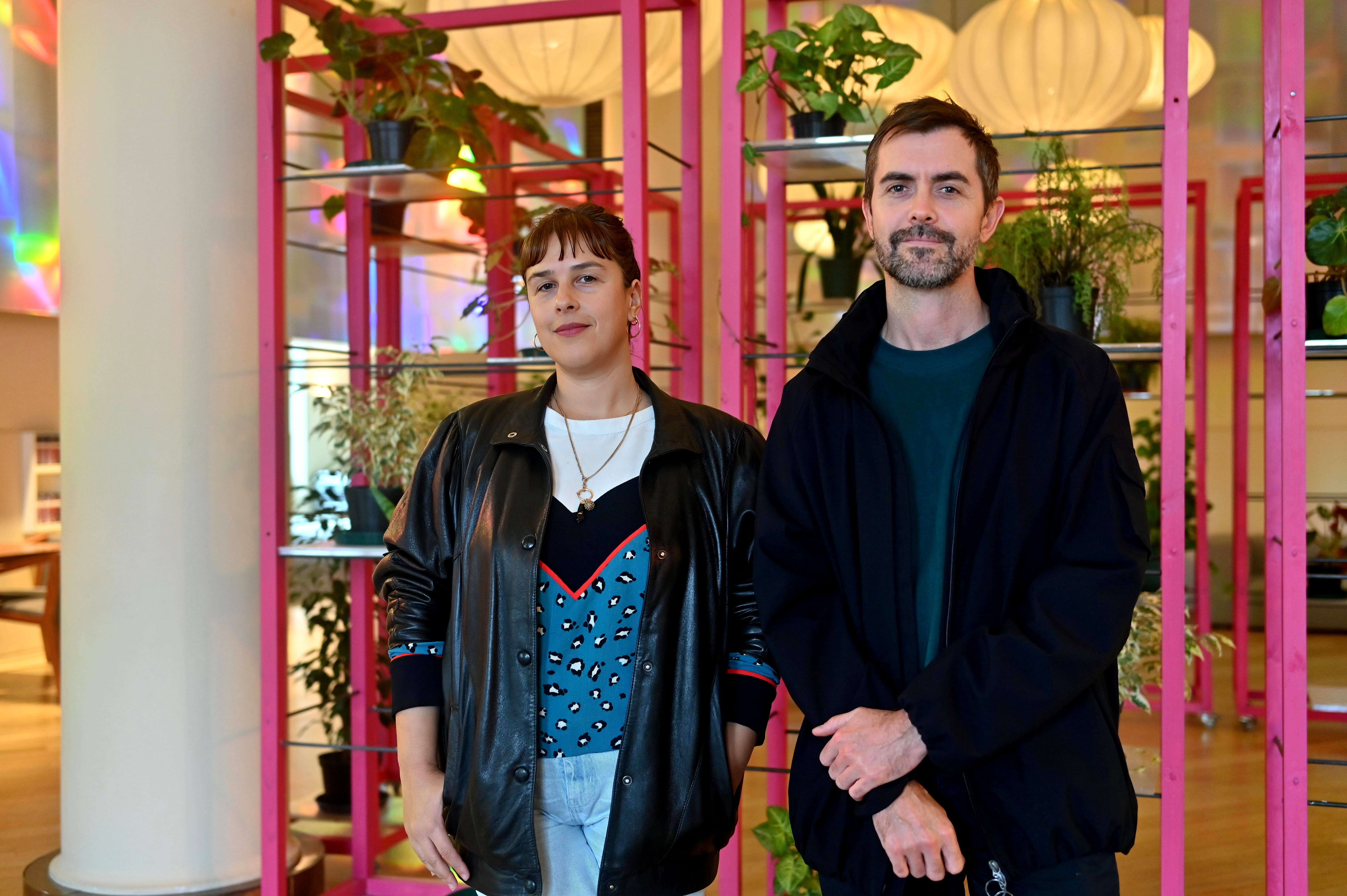EN

On the occasion of Rivoli's anniversary, we spoke to the artistic co-directors of Teatro Municipal do Porto (TMP), Cristina Planas Leitão and Drew Klein. Since February 2023, they have been planning the programme of Rivoli, Teatro Campo Alegre, Campus Paulo Cunha e Silva and Festival Dias da Dança (DDD) for 2024.
Agenda Porto: Cristina has already said that "programming is also about facilitating, mediating, thinking about formats and accessibility". This shows a concern for reaching audiences and creating new audiences... What can TMP audiences expect from the 2024 programme?
Cristina: I think we're concerned with a lot of things; audience is one of them. What we've been noticing, in the program of Teatro Municipal do Porto, the audience is not one block, it's not all the same. For some shows, we have one type of audience; for other shows, we have another type of audience. I think when we look at the program from January to July, we really try to know also who we are expecting to come to what. For example, the performance we're presenting in the anniversary is maybe a bit more daring than previously shown pieces in the anniversaries, that were maybe a bit more conventional, appealing to everyone. We know that some of the things we program might cause dissonance, but in this breach of dissonance there's also questioning arising.
Drew: Yeah, I think too neither of us are people who shy away from getting our hands dirty in the debate of it, too. We like the discourse that comes from working with artists who are asking difficult questions and introducing audiences to new ideas. And I think that's one of the things that's exciting about the project at TMP is that it is living, and it will change from season to season; it will reflect the conversations being had in the city, the development of the city, what's happening globally. And I think that this season, in terms of our audience, seems to be working a little bit more towards inviting more people to contribute to this conversation. We have projects that talk about working class conditions, abortion, war, and pieces that talk about protests, as well, in different forms. And we think that this is the function of our theatre.
"One of the things that's exciting about the project at TMP is that it is living, and it will change from season to season."
AP: The function of creating dialogues and discussion…
C.: Yes. We wrote in the editorial of TMP Agenda that – and it's something that I think has a base, or even subconsciously guides us, how can a theatre not just be a place for fiction, but how can it also present reality? Because nowadays, reality is so distorted… So, how can the theatre also present to different points of view, that you're not just coming to be entertained? Of course, there's a side of entertainment to it. But there's also a notion of entering this space and having questions and reflecting on daily subjects. sobre os assuntos do quotidiano.
AP: What moments in this year's programme would you highlight?
D.: I think the anniversary program is an ambitious, adventurous, wild performance. It's something that doesn't sort of fall softly. It demands the audience's attention, and it's very robust. We think that that is a really, I'd say, apropos introduction for what is coming.
C.: Exactly. Also, in the anniversary, there’s another piece, a smaller piece: Rita Barbosa, for example, she started creating Bertie. It's something that we don't know what it's going to be, you know? And it was the first adventure into virtual reality. At some point, we needed to go there. We don't know how because we don't master this. It's also about taking risks. And I think the anniversary unveils a lot of how we see the season until July.
Of course, there's proposals for the big audience and for the big crowd, let's say. We put a lot of those proposals in June, when people just want to have fun, or go to the beach. They happen towards the summer. For example: LA(HORDE) with the National Ballet of Marseille; the National Ballet of Portugal with contemporary choreographers (Hofesh Shechter, Vasco Wellenkamp and Ohad Naharin), which is something that we also tried to change – to have the National Ballet of Portugal but with a contemporary program; or with a large-scale community project that we have also around that time (ZHA!, of Visões Úteis). I think that was a strategic move.
January, February, March do have a lot of pieces that have somehow political content or thoughts; the piece of Marco Martins talks about the immigrants that many times are working as caretakers; the piece of Gosia Wdowik, Polish, talks about abortion and mental health coming from that idea of pressure…; or Gio Lourenço’s performance, that talks about Angola and the post-war…

Rivoli's anniversary programme is entirely free to attend, and tickets must be collected at the Rivoli box office and BOL on the days of the sessions, from 10am.

The Dan Daw Show, © Hugo Glendinning
D.: I think moving into March is also interesting because we have two pieces made by artists with disabilities, but this is not a part of a focus on disability. We think that is really important to communicate as well. I think all too often, venues try to thematize these programs. This project of Marlene Monteiro Freitas, she's working with Dançando com a Diferença [Dancing with The Difference, in a free translation], stands alone as an evocative and provocative work with the has people with disabilities on stage. Two weeks later is The Dan Daw Show by Dan Daw, who is an Australian performer who puts his body on stage. He has cerebral palsy and the work is about sort of expressing and showing the beauty and complication of his life without necessarily attaching a sort of melancholy to it…
AP: What projects do you have for Campus Paulo Cunha e Silva? In addition to the artist residencies, there have also been weekly open classes, Expanded Practices, which have been well attended...
C.: Campus is a baby. It's very new, just started in 2021. So, when I was designing that first draft, there was always an idea that we would change the project if we felt the need, and keep it as is if not. So, for the next season, it will function exactly how it functions so far through open calls. It's also our only program that functions through open calls, and we read everything the artists send at the same time with an external jury. We felt that there's always new names appearing in these open calls. I think at least for one more year, we'll keep the Campus functioning like that. And the classes [Práticas Expandidas] started being as a side program. We thought it was important to generate community around the space. The truth is that, of course, some have bigger attendance than others. Usually, the dance classes have more attendance than other classes, so, we are also leaning towards more dance classes. So, I think it's more about refining rather than really changing that program.
Also, Reclamar Tempo is a grant for research in the performing arts that now will have the fourth edition. This program aims to reclaim time to investigate, solidify ideas and research artistic practices in the performing arts. We refined the texts of what we ask the artists. We ask really to focus on research; is not just another residency. I think it's more looking like what works, how can we make it work better? And we go from there. Of course, we've crossed partners every time.
AP: What about TMP’s partnerships, do you have new partnerships?
D.: We've been working over the past year to develop more European partnerships with organizations around Europe and around the world, that have a similar sort of focus as ours in terms of being a platform for artists to make new work, to share their work across borders. It's focusing on development, but also on distribution. One of these is called Grand Luxe, which is a network of [nine] partners from several countries built around sharing dance makers.
We are representing the artist Catarina Miranda, she will be a part of the Grand Luxe program, sharing her work and development and making sure that what's being created in this ecosystem has a vehicle to enter in the continent... We're also recently a part of Big Pulse Dance Alliance, which is a network of dance festivals working on taking dance makers who are at that level where they're ready to take the next step; they're ready to make larger works for bigger stages, which is a level in a dance maker's career where it's a challenge to find the resources and the partners to help you take that leap. But these are also projects that are coming around now because of the work that has been done here over the last several years.

© Rui Meireles
Interview by Gina Macedo
Share
FB
X
WA
LINK
Relacionados


